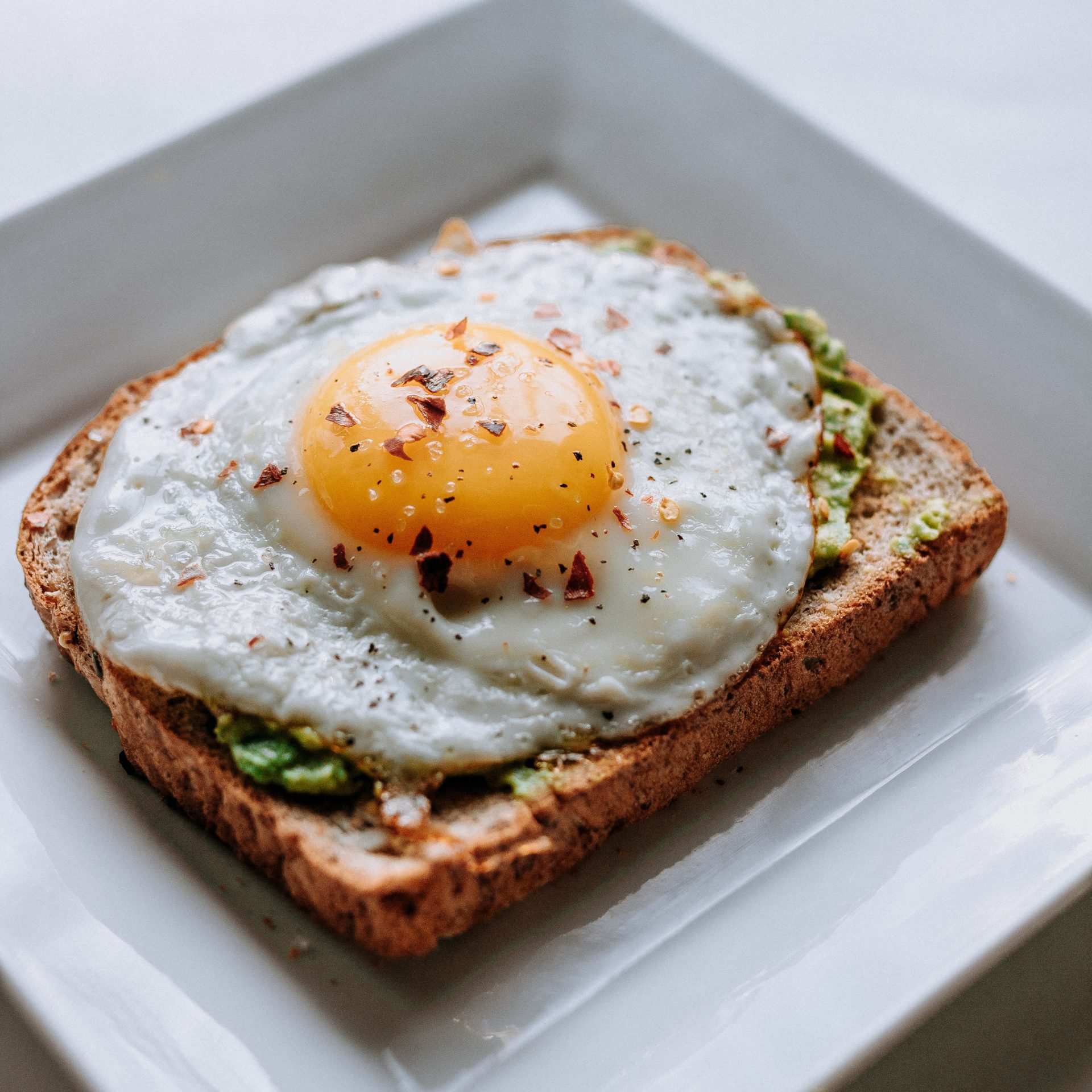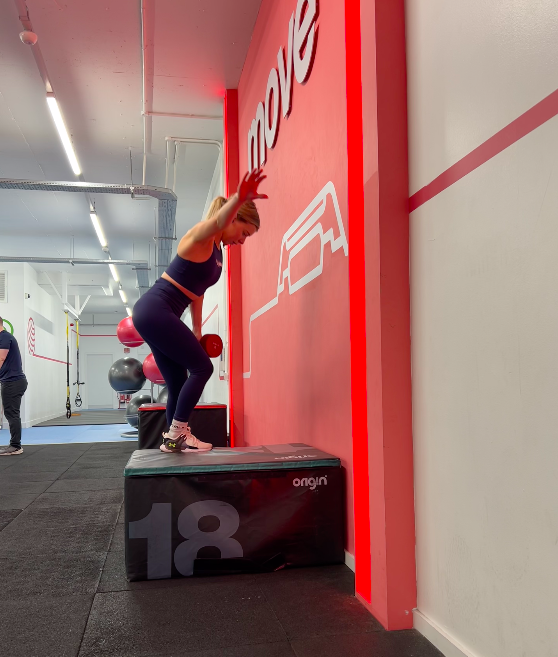Writer Chloe Gray tweaked her nutrition and workout routine to see if it would improve her mental health in winter.
I struggle with seasonal affective disorder every single winter. Yet every year it creeps up on me unexpectedly, flooring me with a shocking wave of anxiety and fatigue.
But not this year. After a tricky few months where my main mood could be boiled down to one of panic, my mental health was on my mind. I decided that 2022 would be the year I took charge, rather than just letting my brain slip with the seasons.
You may also like
Winter mental health: 5 of the best pieces of advice to help combat your festive mood slump
In addition, long-term mental health was something I’d been thinking about a lot, with a close relative recently diagnosed with dementia. I was beginning to realise the importance of good cognition for reasons beyond our mood, so I set myself a challenge: I wanted to try to nail the key components of cognitive function – nutrition, physical activity and mental health practices – for a month.
My hope was that it would make the transition to winter easier, while setting me up with good habits that will have a long-term benefit on my brain, too.
The four-week brain training challenge
Nutrition for mental health
I started with a nutrition chat with Salma Dawood, a qualified nutritionist and head of product at Nu:Tropic, a brain-focused nutrition brand.
During our consultation, she asked me about my day-to-day meals and any immediate examples of when I feel my diet might not be hitting the spot (for me, this included energy crashes around 11am, just before I reach for my second coffee, and worries that my aversion to fish might affect my levels of brain-loving omega 3 fatty acids).

The nutrition plan she devised for me included:
- Swapping my usual breakfast of porridge, fruit, nut butter and a protein shake for a savoury meal.
“Even though it’s not a sugary breakfast, protein powders do contain sweeteners, which can actually have just as big of an effect on your blood sugar,” Dawood explained to me. A study from earlier this year, published in the journal Cell, proved this, finding that glycemic responses to sweeteners can, in some people, cause a rise in blood sugars similar to that of sugar. It doesn’t mean that sweet foods are bad but that artificial sweeteners aren’t ‘healthier’ than sugar. Given I have recently found out I have poor blood sugar control, swapping to a savoury meal without sugar or sweetener might avoid energy crashes.
You may also like
“I took part in the largest nutrition study in the world – here’s what I learned about my gut health”
- Ensure I’m eating proteins, carbs and fats with every meals.
As the weather was getting cooler, I was opting for warming lunches like soup and bread. Dawood suggested adding a protein source to those meals, reminding me of the importance of having every macronutrient with each meal to slow the release of sugars into my blood, leave me feeling nutritionally satisfied and keep my brain powering on for longer.
- Supplement with good quality omegas.
While I eat a lot of chia seeds and nuts in my diet (sources of ALA omegas), they don’t provide enough EPA or DHA omega-3s. Supplementing with 1,500-2,000mg per day, in the form of fish oils or algae supplements, will give me long-term cognitive support, Dawood says.
The bars from Nu:Tropic contain EPA and DHA, so I also add these in alongside my supplements as a pre-workout snack, with bonus points because the carb-rich flapjack provides physical and mental energy for me to get through my training.
Exercise for mental health
When it comes to the workout itself, I turn to a virtual consultation with Lizzie Ede, a personal trainer at Nuffield Health. Despite being a gym-goer for eight years, I’ve never had a personal trainer or followed a programme, being lucky that I find a lot of joy and benefit in researching, planning and trying my own routines and have settled into a gym rota that works for me. I’m intrigued by whether a specialised programme is worth it.
I told Ede that I felt I was a confident gym goer but after so long of training myself it can sometimes feel like I am just going through the motions rather than really loving my training.
I was also struggling to progress in my workouts, finding that I have ‘strong’ days when I lift heavy and ‘weaker’ days when I lift lighter, but that these goalposts weren’t really moving.

Ede came up with a plan for me that she thought would support my mental health and keep me feeling good about my training. It included:
- Four workouts a week, split between lower and upper body sessions.
- Compound exercises such as squats and deadlifts on lower body days and pull-ups and bench press on upper body days. These exercises work a lot of muscle groups at once to build strength, as well as being moves that I enjoy for the feeling of achievement I get after the set.
- Unilateral exercises like step-ups, split squats and half-kneeling single-arm shoulder presses. These were all about increasing concentration and focus during my workout to get my brain firing first thing in the morning when I exercise.
- Heart-rate rising cardio moves. Towards the end of the sessions, I performed exercises such as kettlebell swings that left me feeling energised.
Mental health practices
It was important to me to include some mental-health specific practices during my challenge. The most important for me is belly breathing – a practice that calms my nervous system and supports my digestion. I tried to do this every night before bed, as well as during times when I felt stressed or worried.
I also used tech in the form of my Therabody SmartGoggles – a device that vibrates and heats pressure points on the face to calm or energise the mind, depending on your desired mood – and period trackers so that I could monitor how my menstrual cycle was impacting my mood.
The results of the four-week brain challenge
I am genuinely floored by how these lifestyle tweaks have worked. I’m not saying that nutrition and some workouts alone are enough to stave off poor mental health — there are other factors in my life that are different to years prior, including my work set-up and living situation, which definitely contributed too. But I am really impressed with how well I’ve warded off SAD.
Starting with nutrition, the change to my breakfast from sweet to savoury has been a game changer. I feel much more energised at my desk after a breakfast of scrambled eggs or tofu and toast than I did when eating porridge and fruit.
The 11am tiredness is much less pronounced (although I still love my late-morning coffee) meaning I’m not distracted by hunger or tiredness throughout my morning.
You may also like
Working from home during winter could make your SAD worse – here’s how to handle it
It’s too early to tell if the extra omegas are changing anything, as they’re part of a long-term plan for mental health. However, the research shows that omega-3s might protect cognitive function by helping to maintain neuronal and cell-membrane integrity within the brain.
I thought the workouts were going to be harder to adjust to. I was worried that handing over the reigns of my training to someone else would make me less engaged with the training, but it turns out that not having to think about what I’m doing when I walk into the gym freed up a lot of brain space for me.
A PT might not be accessible to everyone (money was a huge reason I had never used one), but affordable apps like Nobs, Give Me Strength and Strong Women Training Club are a great place to head for plans that mean you don’t have to overthink your workouts. Alternatively, swap workout ideas with friends who could give you the gym inspo you need.
I really loved the focus on unilateral training element as well. Not only did it work my core more than ever before, but it required me to really zone in to my workouts. You can’t have your mind wandering to your to-do list when you’re balancing on a raised surface with a heavy weight in your hands.
Taking four weeks to really consider and work on my mental health has been game-changing. It proves that mental fitness is something we must build and work like a muscle. I’ve had moments of anxiety and stress, but knowing that I have a routine and tools that help has been a really good way to avoid slipping in to full SAD mode. From taking micro-moments and breathing to eating savoury, energising foods, this plan is full of changes I’ll be keeping up with.
Images: Getty/Chloe Gray
Source: Read Full Article
